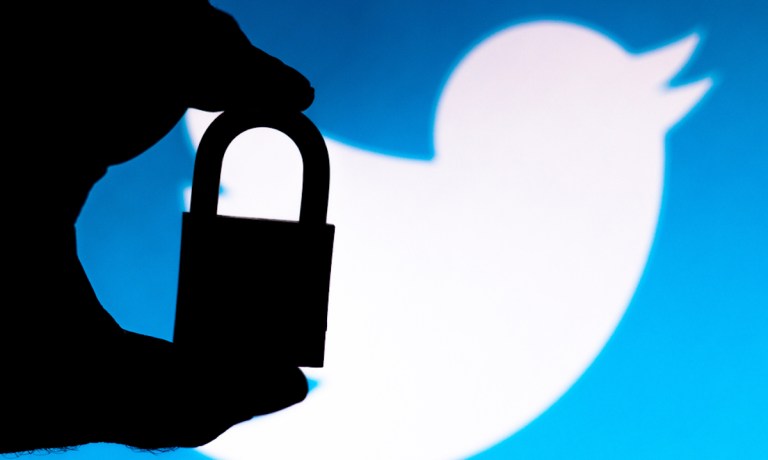Twitter’s Preemptive Privacy Revision Won’t Slow Lawmakers’ Efforts to Amend Section 230

It’s been a wild week at Twitter — or perhaps wilder than usual is a better way to frame it.
On Monday, billionaire Twitter Co-founder Jack Dorsey announced to the company and the world that after 16 years he was stepping down from the CEO role at a company he loves.
not sure anyone has heard but,
I resigned from Twitter pic.twitter.com/G5tUkSSxkl
— jack⚡️ (@jack) November 29, 2021
“My one wish is for Twitter to be the most transparent company in the world,” Dorsey said in closing, after outlining his succession plans.
On Tuesday (Nov. 30), with new CEO Parag Agrawal in place, the company announced that it was updating its existing private information policy and expanding its scope to include “private media,” a company blog declared.
Also see: CTO Parag Agrawal Assumes New Leadership Role at Twitter
Then on Wednesday (Dec. 1), the chairman of the House Energy and Commerce Committee announced that his panel was proceeding with legislative reform efforts “that would hold social media companies accountable,” including possible amendment of Section 230 of the Communications Decency Act, a 25-year-old law that has shielded Twitter, Meta (Facebook) and other Big Tech and social media firms from liability for what is posted by other people on their platforms.
“These hearings come after years of repeated, bipartisan calls for online platforms to change their ways,” Committee Chair Frank Pallone Jr. (D-New Jersey) said in his opening remarks.
“Since 2018, we’ve held six hearings examining tech platform accountability, and our members have sent countless letters,” Pallone continued. “The most prominent online platforms have repeatedly feigned ignorance before this Committee, but our suspicions, unfortunately, have been repeatedly confirmed,” he added, before invoking the explosive insider testimony of Facebook whistleblower Frances Haugen.
And Now, the Fun Part
This swirl of action, both the proactive policy initiatives from Twitter as well as the legislative path being pursued by lawmakers like Pallone, marks the latest chapter in a high-stakes, high-powered and high-profile fight that has been brewing for years.
While federal legislative policy is often crafted and finalized in closed-door meetings, the public statements and sworn depositions from CEOs not only make good theater, but also shed light on how negotiations are advancing while also serving as a way to keep score of the progress.
At the same time, there’s the court of public opinion to contend with, as everyone from industry experts to rank-and-file users get to chime in and stress-test any revisions in real time.
In the case of Twitter, the company’s expansion of privacy rules to include media may be well-intentioned, but it is clearly drawing scrutiny from several quarters.
While Twitter said its existing policy already banned the publishing of other people’s private information, such as phone numbers, addresses and IDs — as well as threatening to reveal such information, aka “doxing” — the company felt it needed to expand that ban to include media postings of other people without their consent, noting that it would now take down posts that violate that standard.
“There are growing concerns about the misuse of media and information that is not available elsewhere online as a tool to harass, intimidate and reveal the identities of individuals,” Twitter Safety blogged. “Sharing personal media, such as images or videos, can potentially violate a person’s privacy, and may lead to emotional or physical harm. The misuse of private media can affect everyone, but can have a disproportionate effect on women, activists, dissidents and members of minority communities.”
But that statement, while clearly true, quickly came under fire from users and social media observers who questioned how it would actually be deployed, pointing to instances such as widespread viral video postings of hostile in-store customers or on-flight passenger altercations, people in a crowd at a public event or protest footage as problematic grey areas.
On the other side of the Section 230 debate, there is legitimate concern as to why social media companies such as Yelp have no responsibility to verify the truth and veracity of a negative review of a restaurant or salon posted on their site.
As PYMNTS’ Karen Webster pointed out in a column last month, these protections are granted and liability eliminated, “even if it is offensive, obscene, blatantly false or harmful to the reputations of people and businesses, or facilitates harmful, or possibly illegal, activity by third-party businesses or the people who post it.”
Read the full article: How Regulation Could Shape the Connected Economy’s Future
The fact that these “content distribution platforms” are not publishers, but also make money off the traffic that visits their sites, is another sticky area of conflict that still needs to be reconciled.
But with the two sides still seemingly miles apart, and a growing sense of frustration in the public and Congress, the prospects for a legislative fix versus a negotiated settlement — or piecemeal repairs such as Twitter’s — are clearly on the rise.